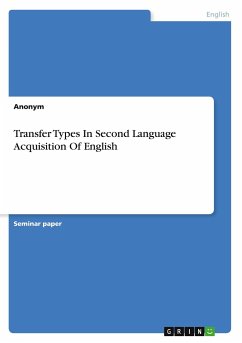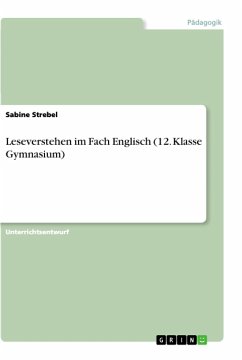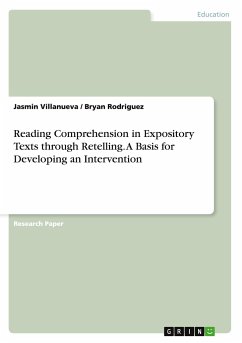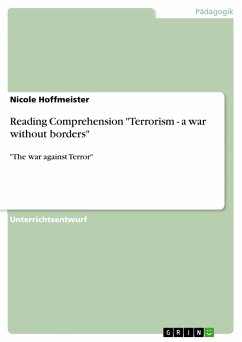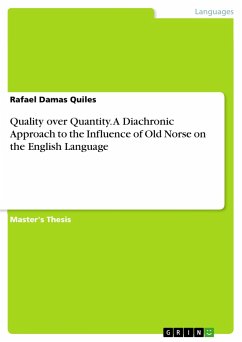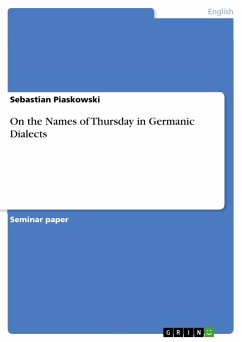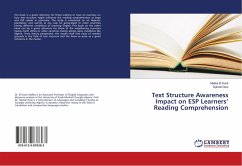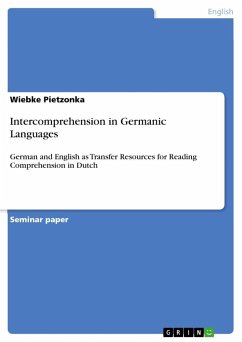
Intercomprehension in Germanic Languages
German and English as Transfer Resources for Reading Comprehension in Dutch

PAYBACK Punkte
0 °P sammeln!
Seminar paper from the year 2013 in the subject English Language and Literature Studies - Linguistics, grade: 1,0, University of Potsdam (Institut für Anglistik/ Amerikanistik), course: Transfer in Second Language Acquisition , language: English, abstract: Since communication relies on comprehension, intercomprehension as a learning principle is a way to save time and energy when learning a language. In this respect, (partial) multilingualism or plurilingualism becomes attainable for many more language learners at a time. But in order to reach the goal of multilingualism in the form of partia...
Seminar paper from the year 2013 in the subject English Language and Literature Studies - Linguistics, grade: 1,0, University of Potsdam (Institut für Anglistik/ Amerikanistik), course: Transfer in Second Language Acquisition , language: English, abstract: Since communication relies on comprehension, intercomprehension as a learning principle is a way to save time and energy when learning a language. In this respect, (partial) multilingualism or plurilingualism becomes attainable for many more language learners at a time. But in order to reach the goal of multilingualism in the form of partial skills learning, some basic requirements have to be met. (van de Poel in: Kischel 2002: 97)(...)In this paper, I want to prove that L1 speakers of German are able to understand the main information provided by a short text in Dutch - a language, no one of the subjects in the short study I conducted has formally acquired before. The basis of such receptive comprehension of Dutch by L1 speakers of German is laid by the principle of Germanic intercomprehension, whose main characteristics and aspects will be discussed in the first part of the paper. In the second part, the study itself will be presented and analyzed. Is L1 German the `only` important resource language for reading comprehension in Dutch? Do L1 speakers of German with a high proficiency in L2 English have a higher success rate in this respect than L1 Germans with low-intermediate proficiency in L2 English? What are the possibilities of Germanic intercomprehension? With the help of the study presented, these questions shall be answered in the course of this paper.




